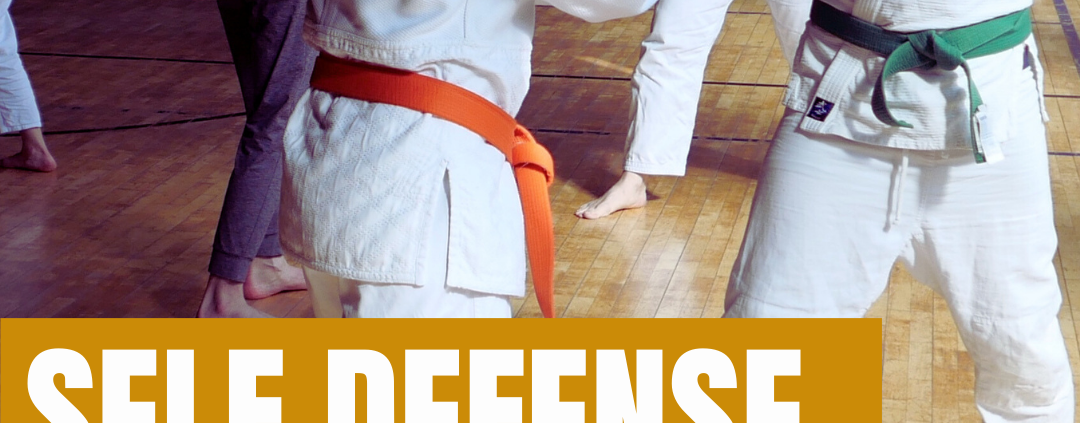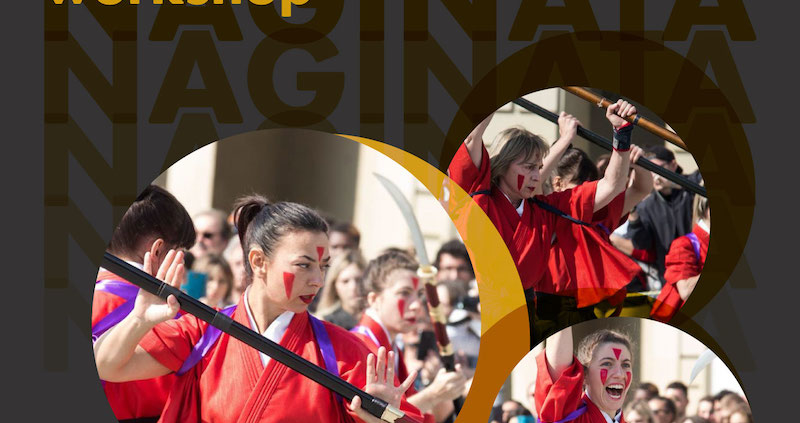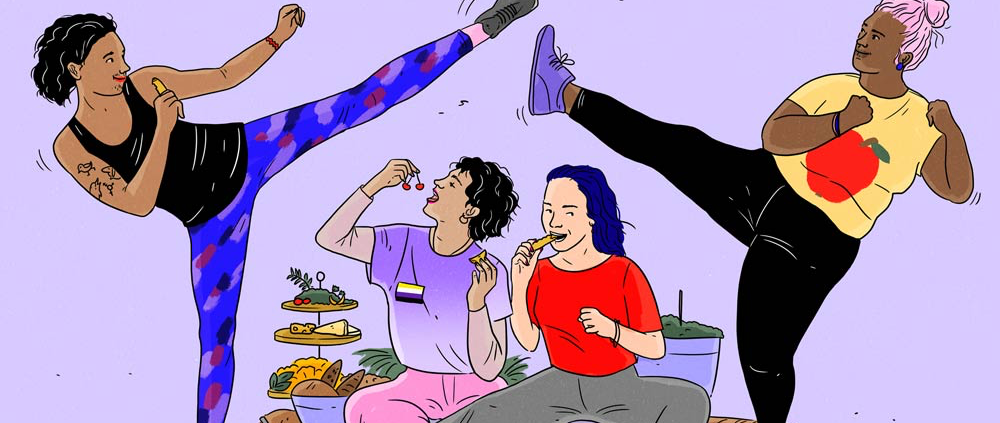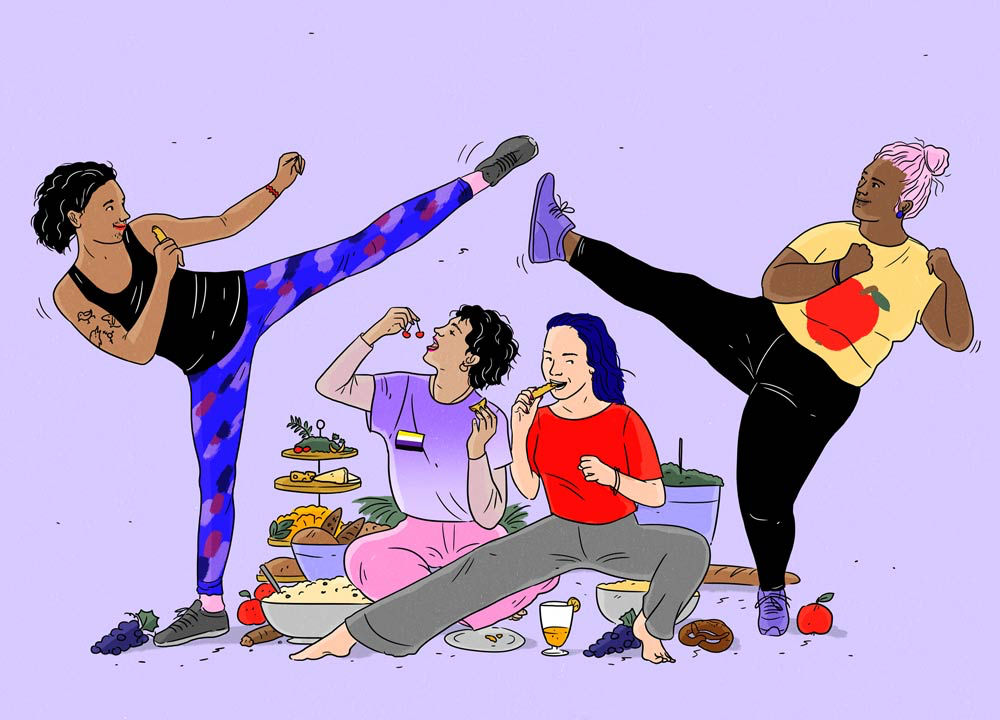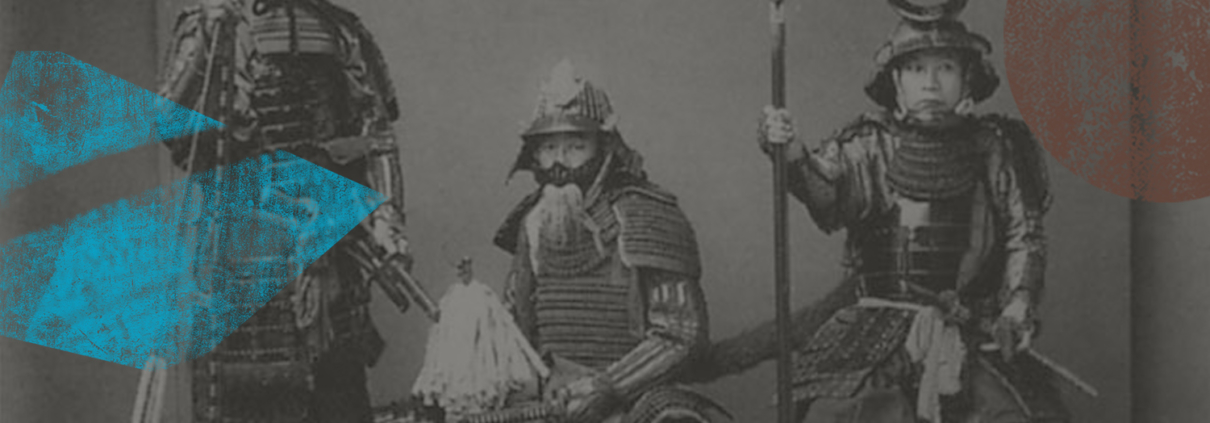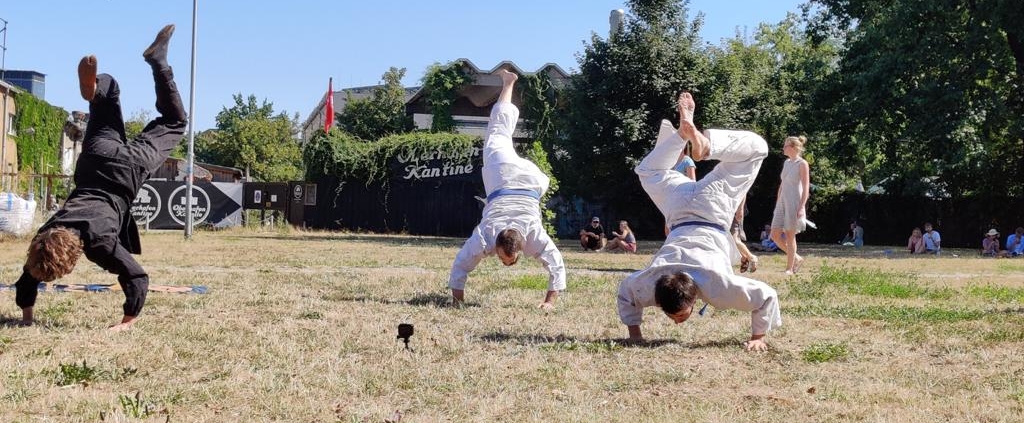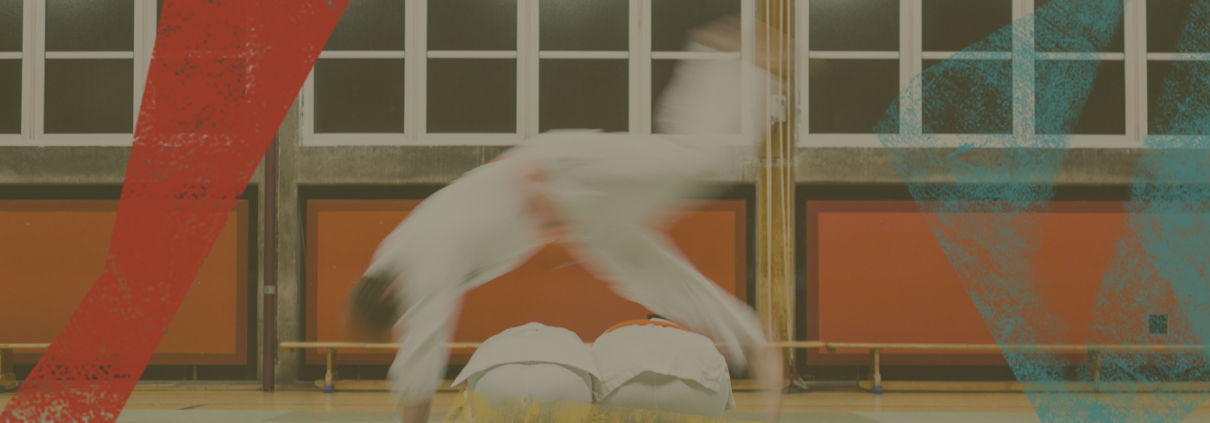Martial arts practice is often lauded as an antidote to bullying and abuse, and rightly so. In fact, at Yanagi we deeply believe that engaging in martial arts will make anyone who practices them stronger, more confident, and better able to stand up against forms of manipulation, abuse or aggression they may experience in school, at work, or in any other social settings. There is plenty of scientific evidence for it, and most people who have studied a martial art will agree that the practice empowers by increasing one’s sense of physical strength, by becoming part of a dedicated group of students, by building confidence and by offering plenty of interesting lessons to use in one’s life outside the dojo or gym.
However, the same martial arts training that provides all these benefits also carries huge risks when it comes to bullying and different forms of abuse. A key component in this risk is the power differential created by the hierarchies common to most martial arts: you start as a white belt, progress through the ranks and train hard to reach the coveted level of black belt (and possibly, depending on your art, many additional levels beyond that). Once you are at the top of the hierarchy or near it, there is very little, and there are very few people, that will hold you to account. Several scandals in competitive martial arts that have recently been debated in the media confirm this. In the U.S., several lawsuits are being pursued against Steven and Jean Lopez, who have been key athletes and coaches on the U.S. Olympic Taekwondo team for many years. They are charged with human trafficking, rape and abuse. As recently as this past spring, Japanese Karate champion and Olympian Ayumi Uekusa quit her team ahead of the 2021 Olympics and went on the record about the abuse she faced from her coach. This included bullying and emotional abuse, interference in her personal life, as well as hitting her in the face with a bamboo sword as part of practice (when she was not wearing any protective gear).
These cases illustrate some of the abuses of power that are happening in martial arts, and more needs to be done at all levels to change the structures and prevent the behaviours that are leading to such abuse. But how do we square this with practicing a traditional martial art, where hierarchy is a crucial component of organisational structures and indeed a key motivational and didactical instrument? After all, the prospect of getting to the higher belts is precisely what helps motivate many students to stay consistent in what is often a taxing and demanding practice.
Luckily, of course, many sports organisations are already doing a lot to combat abuse, whether at professional or amateur level. For instance, at Yanagi we are part of the Berlin-wide certification program implemented by Landessportbund Berlin, the local umbrella body for sports associations. Their ground rules forbid abuse and foster an environment of non-discrimination. However, little seems to be happening when it comes to more grey areas of abuse, such as bullying and harassment in martial arts dojos (and beyond), and it is important to raise awareness about these, and to advocate for and establish a culture of safe spaces in martial arts dojos for people of all ages and genders.
At this point, I want to share some of my personal story related to abuse and bullying in martial arts. It has taken me a while to get to the point where I can name what happened as such, and call it abuse, and to be able to write about it and share it. I think it is important to do so not just from a personal perspective, but also in order to raise awareness, encourage others with similar experiences to come forward, and to contribute to changing some of the toxic cultures and subcultures that thrive in some corners of the martial arts universe unabated.
I started my practice of Jutaijutsu when I was 24 and had just moved to Berlin. I was trying to find my footing in this new, unfamiliar city that can often be rough and unwelcoming towards all kinds of newcomers. I quickly grew enthusiastic about Jutaijutsu: it helped me get fit, meet people, and reflect on my personal journey and growth. It provided a fascinating and engaging mix of being part of a team on one hand, and working on individual challenges, on the other. I particularly liked the fact that there were no formal competitions, and that many of the higher-level black belts as well as the Sensei were women. It seemed like a safe space for me to become part of. I also liked that it was a niche martial art and seemed special and interesting, less well-known than Judo or Jujutsu.
After doing my first couple of belt exams and becoming part of a tightly knit group of training partners, I was hooked. Jutaijutsu took up an ever-growing part of my life, and my social life began to evolve around my fellow students, as well. I loved the challenges, I loved working on myself and the confidence and sense of strength I was gaining from the practice. I stayed engaged and devoted even as some fellow students dropped out: the training became too demanding for them to square with the rest of their lives, they had kids or moved on to other cities or other pursuits. Sometimes there were also conflicts or disagreements with the Sensei or other black belts that led to people stopping training. I was committed throughout it all, even while I had a full-time job outside of the city that I was commuting to every day. I would still train three times a week, even while our training group shrank to 4 or even 3 people who attended regularly. The only thing that upset and bothered me was why we seemed to be unable to attract new students: our Sensei kept exhorting us to bring in friends and colleagues, and placed a lot of the responsibility for the school’s growth on us. Being a person who wants to help and solve problems, I took on a lot of that responsibility well before I became a black belt. I didn’t want to see that it was arrogance at the top of the hierarchy and a deeply toxic training environment for anyone who did not unquestioningly accept the norms of the school that was keeping people away.
Finally, I began preparation for the black belt exam together with a friend and training partner I had shared a lot of my path with. We worked incredibly hard for six months in preparation for the exam. At this point, our practice had already involved making big sacrifices for several years: ever since becoming blue belts, we had regularly trained three times a week and taken part in all-weekend workshops, opting out of much of our social lives and sometimes even compromising on our professional choices. I remember my training partner turning down lucrative job offers because they would have prevented him from training as much, and I regularly restricted my job search to Berlin, even though my international education and professional outlook would have made a job abroad an attractive and logical choice. But I was committed to our tiny school, our journey, and ultimately to what our Sensei was building, and wanted to stay. I was also afraid of letting go of what I had invested in so heavily: I was scared it would lead to letting go of my newfound strength and confidence, as well. What had started out as an exciting journey of discovery was morphing into a co-dependent relationship that would slowly turn increasingly toxic.
When we finally got to the black belt, I got to look behind the scenes. I was now part of the elite circle leading the school, the dealings of which had largely been kept apart from us as Kyu (practitioners below the black belt level). My training partner quit soon after we reached the black belt: he was unwilling to keep up the high investment of time and energy required as he was starting a family, and increasingly disliked what he saw while training as a black belt. I was upset and disappointed by his quitting on us, and felt betrayed by his lack of commitment – with hindsight, I have a different and more understanding view of his choices.
Being the first newcomer to black belt level in several years, I was now edged on by my Sensei to “shake up” the slightly tired circle of remaining black belts, instil new life into the school, and help it grow and fulfil the Sensei’s dream of reaching the size of her school of origin in Italy. This school, Yoshin Ryu Torino, which remains Yanagi’s school of reference and source of knowledge in the present, has over 300 active members and is well-recognized on the local martial arts scene in Italy. Again, with hindsight, growing to such a size from a training group of 4 people with few resources always seemed impossible, but I believed in us, really took on the challenge and doubled my investment. Being pushed by the Sensei as the mover and shaker inevitably led to resentment from the other black belts. They would often put me down and try to control my enthusiasm and influence in the group – unchecked by the Sensei. Some unhealthy dynamics began developing and playing out early on. Whenever it was convenient, the Sensei would support my ambitions and use my engagement as an example to berate the others for their lack of commitment. When it was inconvenient or challenging to her, she wouldn’t blink twice before putting me down in front of the group for being ‘problematic’ or ‘too ambitious’. I never knew which it was going to be.
I eventually started my own class as part of the school, initially with 2 or 3 students of my own. I had realized that if I wanted to pour all of that investment and energy into something to help the school grow, this was the place, and it was what we had been called upon by our Sensei to do: Set up new spin-off classes to grow the school and attract students. At first I was met by skepticism and derision by some of the other black belts, who called on me to stop the class and come back to the main course to help teach there, instead of opening up a new branch. I received little support from my Sensei again, but decided to stick it out despite my own doubts about my abilities as a teacher and my inexperience at it. I just threw myself at it and did the best I could, in every session. Eventually, my class started growing and attracting new students. Teaching several times a week, as well as attending black belt training and many organising meetings with the other black belts and Sensei again proved to be a huge commitment and took up a huge part of my time. But teaching my class was, and remains, the most rewarding thing for me: I get to pass on the knowledge I have gained, help other people gain strength and confidence the same way I have done, and to really inspire a change for the better in their lives. This was definitely worth all the sacrifice and effort for me.
However, more conflict was ahead at the school. Things first really came to a head when I started openly criticising the Sensei. After a particularly draining period, where I had been tasked with preparing a student for his black belt exam for six months, while still teaching my class, working two jobs and finishing my PhD, I broke down in one black belt group meeting. I told the Sensei straight out that I felt I was being used, and that I was worried because she was happy to slap tasks on us, while not developing a vision or a plan for growing the school herself. Which was something that I saw as the task of the school’s leader, not everyone else’s. The retaliation did not take long in arriving and I was called to a formal meeting.
When I arrived, the Sensei and all the other black belts were there and I was made to sit opposite them. Knowing without being told that an apology was called for, I had been doing some thinking ahead of this meeting. I knew that my critique was legitimate and justified. But I also knew that within the strict martial arts hierarchy, the way I had uttered it – in front of the group and as a direct personal criticism of my Sensei – was not really acceptable. Hence, despite feeling reluctant about it, I started the meeting by apologising for the way I had behaved. But far from accepting this apology, I found that the Sensei and the other black belts did not take me seriously, brushed my apology aside and instead used the meeting to attack and criticise me personally. The Sensei started laying into me with ad hominem attacks: saying I had been disobedient was the nicest of the accusations. She soon started using personal details I had previously disclosed to her in confidence against me in front of the group: that my mental health problems and struggle with depression had surely played into my bad behaviour. That I was a selfish and narcissistic person who was too ambitious and wanted too much. That I was not ‘mature’ enough for the position of a black belt. And on it went, for an hour and a half in total. I was horrified by the experience and left the meeting in shock. Somehow I had still held on to the hope that these people, whom I had looked up to for many years, actually meant well and had my best interests at heart. After this meeting, I knew – and I had known deep down for some years – that this was not true, unfortunately.
Things never really went back to the way they were after that. I continued to teach my class and disengaged somewhat from the intense exchange with the other black belts around organising the school that had previously used up a lot of my time (and produced few results). But I felt dejected, and suddenly the whole school, and to some extent the art itself, lost its shine for me. I started seeing it for what it was: a small group of people who wanted to hold on to the personal power conferred upon them within Jutaijutsu at all costs, led by a Sensei who had stopped any personal growth or development in the martial arts long ago and was unwilling to challenge herself. And who was using any weapon in her arsenal to keep other people from challenging her power or authority within the hierarchical system she had created.
The only reasons I didn’t stop were my students, whose growth and development continued to give me energy and joy, along with the fact that I was unwilling to give up all the things I had worked for so hard because some unkind and petty people didn’t want me to say what I thought. Another reason was that I knew I still had a lot to learn and look forward to in Jutaijutsu, and that our school of origin in Turin was there to provide it. So I kept working and investing in my class. Soon after this meeting, my mom was diagnosed with terminal cancer, and I disengaged even more from the dynamics of the school, while still trying to keep up my share of contributions to any joint efforts the school was engaging in, such as performances at public events and the like. The Sensei didn’t miss the opportunity to remind me, again in front of the whole group, that I should keep attending the black belt training despite what was happening to my mom. I left without a response – which wouldn’t have been welcome, anyway – and incredulous that the Sensei did not see that I was already attending trainings despite my mom being ill, and despite my family asking me to spend more time with them and ditch training. Even here, I was making the school my top priority when in hindsight, I shouldn’t have. The day after my mom had died, I turned up for black belt class and was met with awkwardness and silence from the Sensei and other black belts. A truly supportive environment certainly looks different.
After keeping this up for another couple of years, a new conflict started brewing at the end of 2018 that eventually, and finally, led to my leaving this school to set up Yanagi. Yoshin Ryu in Italy, whose Sensei is the person responsible for the development of Jutaijutsu throughout Europe, had been pushing for our Berlin school (my previous school) to invest more in advancing at black belt level in order to ensure the quality of our practice and teaching. This was difficult and costly for us, as it involved travelling to Italy for training, or inviting teachers from there to come to Berlin and cover all their costs. For a small school, these were significant investments we had been struggling with for years. But our Sensei had also made it clear that not all the fees we were collecting from students should go towards this goal, and no individual black belts (such as myself) should be allowed to seek progress in their training alone. We should do it as a group, or not at all, which seemed to present unsurmountable obstacles for us. Eventually, Yoshin Ryu challenged us over this, and pushed for our professionalisation and further training in order to keep up quality standards. This push led to new tensions also between me and my Sensei, including her wanting to start a class of her own with mandatory attendance for several of my students, and me disagreeing with that plan. Things escalated into yet another full-on conflict. The Sensei called another group meeting and again viciously attacked me in front of everyone, so that I announced then and there that I was leaving the school to start my own dojo. And that, finally, was the end of that story. The large majority of my students came with me, and this is how we started Yanagi.
Today, I try not to look back often and try to focus my energy on building something new, and something completely different, at Yanagi. Above all, I want to make sure the type of abuse and harmful treatment I have experienced will never happen in my school. I have introduced a code of conduct that bans abusive behaviour and discrimination, and signals clearly to all new students who join that these types of behaviours will not be tolerated. I want to establish a transparent, respectful and inclusive culture open to all genders, and offer a truly safe space for everyone to experience personal growth and empower themselves within a martial arts context. Looking back at what happened, I am just amazed that I stayed and endured the horrible bullying and gaslighting for so long, believing that they were normal martial arts practice, because that’s what I had been led to believe. My sensei passed off these practices as the ‘right way’ in martial arts, and questioning them (and her) was declared a sacrilege. If you did, you were immediately forced out, or bullied into quitting, with all social contact with former ‘traitors’ declared unacceptable and frowned upon. It’s true that many martial arts have strict hierarchies that come with rules and expectations attached. These are no excuse, however, for people to live out their personal fantasies of power, and for abusing students who depend on them in the process. Since there are rarely any supervisory bodies, and because of the ‘secrecy’ often surrounding the higher levels of martial arts and the transmission of a school’s knowledge, the environment is very conducive to abuse and bullying. It’s up to those running schools and classes to lead by example, and to establish safe and inclusive learning and training spaces for all. This requires constant work and a willingness to accept criticism and work towards changing one’s own behaviour that is not often part of the idea of being a ‘master’. The common assumption is that masters or teachers offer wisdom to students and provide examples to emulate, but the process of a teacher’s own growth and self-reflection is often not part of such an idea. Knowing all that we know today and living in today’s society, however, I think these processes are necessary at any level of a hierarchy, and form part of a healthy and inclusive dojo environment. That’s what we try to foster at Yanagi.
Eva Dingel, Founder of Yanagi

